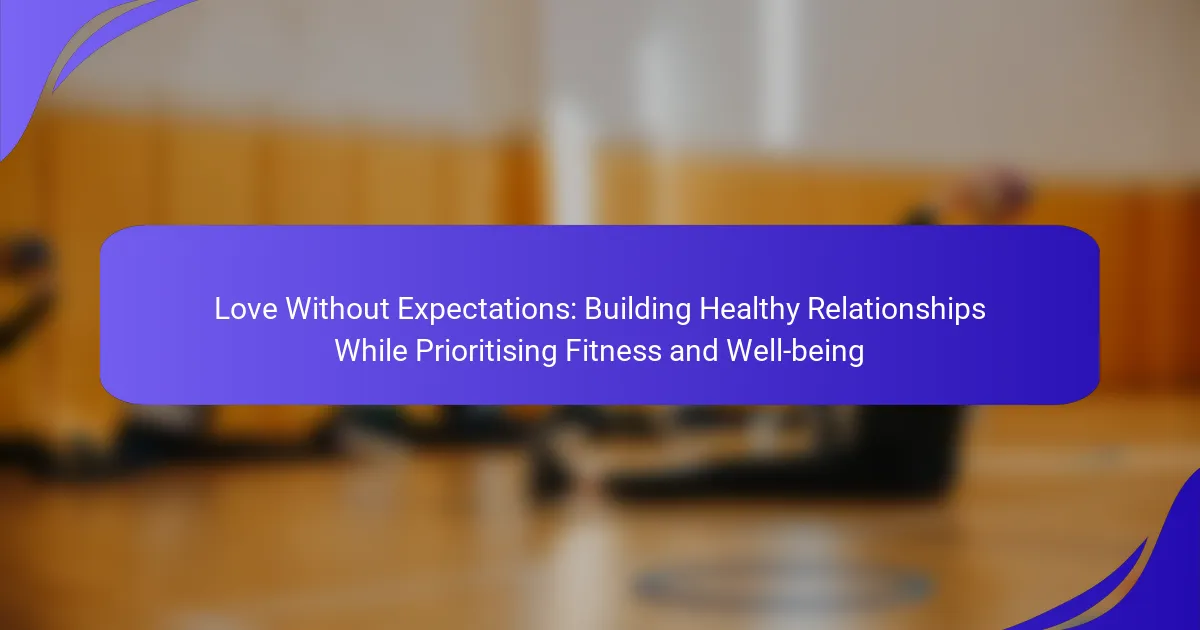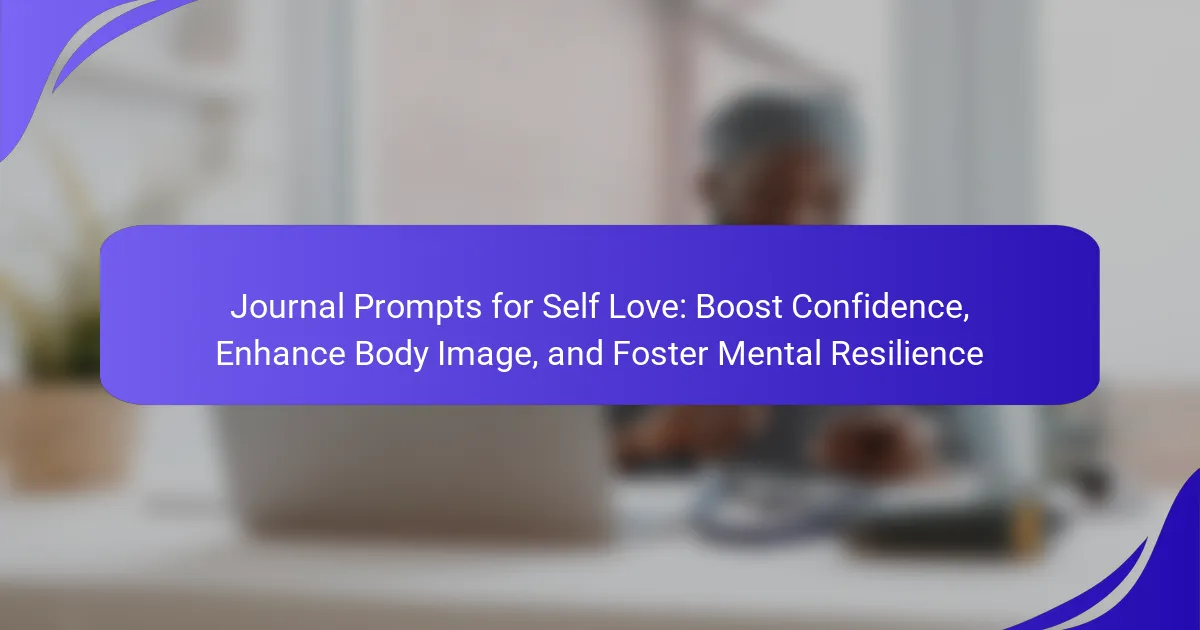Building healthy relationships while prioritising fitness and well-being can enhance emotional bonds and reduce stress. Engaging in physical activities together fosters communication and mutual support. Addressing unique challenges men face in balancing fitness and relationships is essential for deeper connections. Implementing shared goals and open communication can lead to increased relationship satisfaction and longevity.

How can fitness enhance relationship dynamics?
Fitness enhances relationship dynamics by fostering communication, trust, and shared goals. Engaging in physical activities together strengthens emotional bonds and promotes mutual support. Couples who prioritise fitness often experience improved mental health, reducing stress and enhancing overall relationship satisfaction. This shared commitment to well-being encourages accountability and deepens intimacy, creating a healthier partnership.
What role does physical health play in emotional well-being?
Physical health significantly influences emotional well-being by enhancing mood, reducing anxiety, and promoting resilience. Regular physical activity releases endorphins, which can improve overall happiness. Additionally, maintaining a balanced diet supports brain health and emotional stability. Studies show that individuals who prioritise fitness report higher levels of life satisfaction. Engaging in fitness routines can also foster social connections, further enriching emotional health.
Why is communication vital in fitness-oriented relationships?
Communication is essential in fitness-oriented relationships as it fosters understanding and support. Open dialogue about fitness goals, preferences, and challenges strengthens emotional connections. Effective communication also helps partners navigate differences in motivation and commitment levels, promoting a shared journey towards well-being. Regular discussions about progress and setbacks can enhance accountability and encouragement, creating a positive environment for both individuals. Ultimately, strong communication cultivates trust, ensuring both partners feel valued and understood in their fitness endeavours.
What strategies can improve communication about fitness goals?
Establishing clear communication about fitness goals enhances relationship dynamics. Use active listening to understand each other’s objectives. Set specific, measurable goals together to ensure alignment. Regular check-ins foster accountability and motivation. Celebrate achievements to reinforce commitment and connection.
How does shared fitness activity strengthen bonds?
Shared fitness activities strengthen bonds by fostering teamwork, communication, and mutual support. Engaging in physical challenges together creates shared experiences that enhance emotional connections. Studies show couples who exercise together report higher relationship satisfaction. This unique attribute of shared fitness builds trust and encourages vulnerability, essential for healthy relationships. As a result, prioritising fitness not only improves well-being but also deepens interpersonal ties.
What types of workouts are best for couples?
Couples benefit from workouts that promote teamwork and communication. Partner yoga, dance classes, and circuit training are excellent options. These activities enhance bonding and physical fitness simultaneously.
Partner yoga fosters trust and flexibility. Dance classes improve coordination and rhythm while encouraging fun. Circuit training allows couples to motivate each other, building strength and endurance together.
Engaging in these workouts strengthens relationships and prioritises overall well-being. Regular physical activity can lead to improved mood and reduced stress, enhancing relationship satisfaction.

What are the universal benefits of prioritising fitness in relationships?
Prioritising fitness in relationships fosters deeper connections, enhances communication, and promotes shared goals. Engaging in physical activities together strengthens emotional bonds and creates a supportive environment. Couples who prioritise fitness report higher satisfaction levels, improved mental health, and increased longevity in their relationships. Regular exercise can also reduce stress and conflict, leading to a more harmonious partnership.
How does regular exercise boost relationship satisfaction?
Regular exercise significantly boosts relationship satisfaction by enhancing emotional connection and communication. Engaging in physical activity together fosters teamwork and shared goals, which strengthens bonds. Research shows that couples who work out together report higher levels of intimacy and satisfaction. Additionally, exercise releases endorphins, improving mood and reducing stress, which positively impacts relationship dynamics. Prioritising fitness not only benefits individual well-being but also cultivates a supportive environment for healthy relationships.
What are common psychological benefits linked to fitness and love?
Engaging in fitness and nurturing love without expectations yields several psychological benefits. These include enhanced mood, reduced anxiety, improved self-esteem, and stronger emotional resilience. Physical activity releases endorphins, promoting happiness. Healthy relationships foster a sense of belonging, contributing to overall well-being. Prioritising fitness alongside love cultivates a balanced lifestyle that supports mental health.

What unique challenges do men face in balancing fitness and relationships?
Men face unique challenges in balancing fitness and relationships due to time constraints, differing priorities, and emotional availability. Fitness often requires significant time investment, which can lead to feelings of neglect in relationships. Additionally, partners may not share the same fitness goals, creating tension. Emotional availability can be diminished when focusing on personal fitness, leading to misunderstandings. Effective communication and setting mutual goals can help mitigate these challenges, fostering stronger connections while prioritising well-being.
How can societal expectations impact men’s health and relationship choices?
Societal expectations can significantly influence men’s health and relationship choices by imposing standards that prioritise success and emotional restraint. Men may feel pressured to conform to ideals of strength and independence, leading to neglect of mental health and emotional intimacy. These expectations can create barriers to seeking help or forming vulnerable connections, ultimately affecting overall well-being. Studies indicate that men who engage in open communication and prioritise fitness report healthier relationships. As a result, challenging societal norms can foster healthier dynamics and improve mental health outcomes.
What unique strategies can men employ to foster healthy relationships?
Men can foster healthy relationships by prioritising open communication, mutual respect, and shared goals. Engaging in physical activities together strengthens bonds and promotes well-being. Practising empathy enhances emotional connection, while setting boundaries maintains individual identity. Regularly checking in with each other ensures both partners feel valued and understood.

What rare attributes contribute to long-lasting fitness-focused relationships?
Mutual respect and shared goals are rare attributes that contribute to long-lasting fitness-focused relationships. These elements foster a supportive environment where partners encourage each other’s well-being. Additionally, open communication about fitness aspirations enhances trust and connection. Engaging in joint fitness activities creates shared experiences, deepening the bond. Lastly, adaptability in fitness routines allows couples to grow together, maintaining harmony and commitment over time.
How does emotional intelligence enhance relationship health?
Emotional intelligence significantly enhances relationship health by fostering empathy, communication, and conflict resolution. It allows individuals to understand and manage their emotions, leading to deeper connections. Emotional intelligence contributes to relationship longevity by promoting trust and mutual respect. As a result, partners can navigate challenges collaboratively, enhancing overall well-being.
What role does vulnerability play in fitness and love?
Vulnerability fosters deeper connections in fitness and love by promoting authenticity and trust. In relationships, sharing struggles enhances emotional intimacy, encouraging partners to support each other’s wellness journeys. This mutual support can lead to improved physical health outcomes, as individuals feel more motivated in their fitness pursuits. Vulnerability also allows for open communication, which is essential for resolving conflicts and maintaining a healthy relationship dynamic. By embracing vulnerability, individuals can prioritise both their fitness and emotional well-being, creating a balanced and fulfilling partnership.

What practical tips can help men build healthy relationships while prioritising fitness?
To build healthy relationships while prioritising fitness, men should focus on open communication, shared activities, and mutual support. Engaging in fitness together fosters connection and accountability. Setting goals as a couple can enhance motivation. Prioritising self-care increases overall well-being, benefiting both partners. Regularly discussing feelings and expectations strengthens trust and intimacy.
What are the most common mistakes men make in fitness and relationships?
Men often make mistakes in fitness and relationships by neglecting balance, communication, and self-awareness. Common errors include prioritising physical appearance over emotional connection, failing to set realistic fitness goals, and not addressing relationship issues directly. These missteps can lead to frustration and unmet expectations. For instance, men may focus excessively on workout routines while neglecting quality time with partners, resulting in strained relationships. Additionally, unrealistic body image standards can foster insecurity and dissatisfaction. Recognising these pitfalls is crucial for fostering healthy relationships and achieving fitness goals.
How can men set realistic fitness goals that support relationship health?
Men can set realistic fitness goals that enhance relationship health by focusing on balance and communication. Establish specific, measurable objectives that align with personal values and relationship dynamics. Consider joint activities that promote shared fitness experiences, fostering connection. Regularly reassess goals to ensure they remain supportive rather than burdensome. Prioritise open dialogue about fitness aspirations to maintain mutual understanding and encouragement.
What expert insights can guide men in balancing love and fitness?
To balance love and fitness, men should prioritise open communication, set mutual goals, and maintain individual fitness routines. These strategies foster healthy relationships while supporting personal well-being. Establishing boundaries helps manage time effectively, ensuring both love and fitness receive attention. Engaging in joint activities, like workouts or healthy cooking, strengthens bonds and promotes shared wellness.



